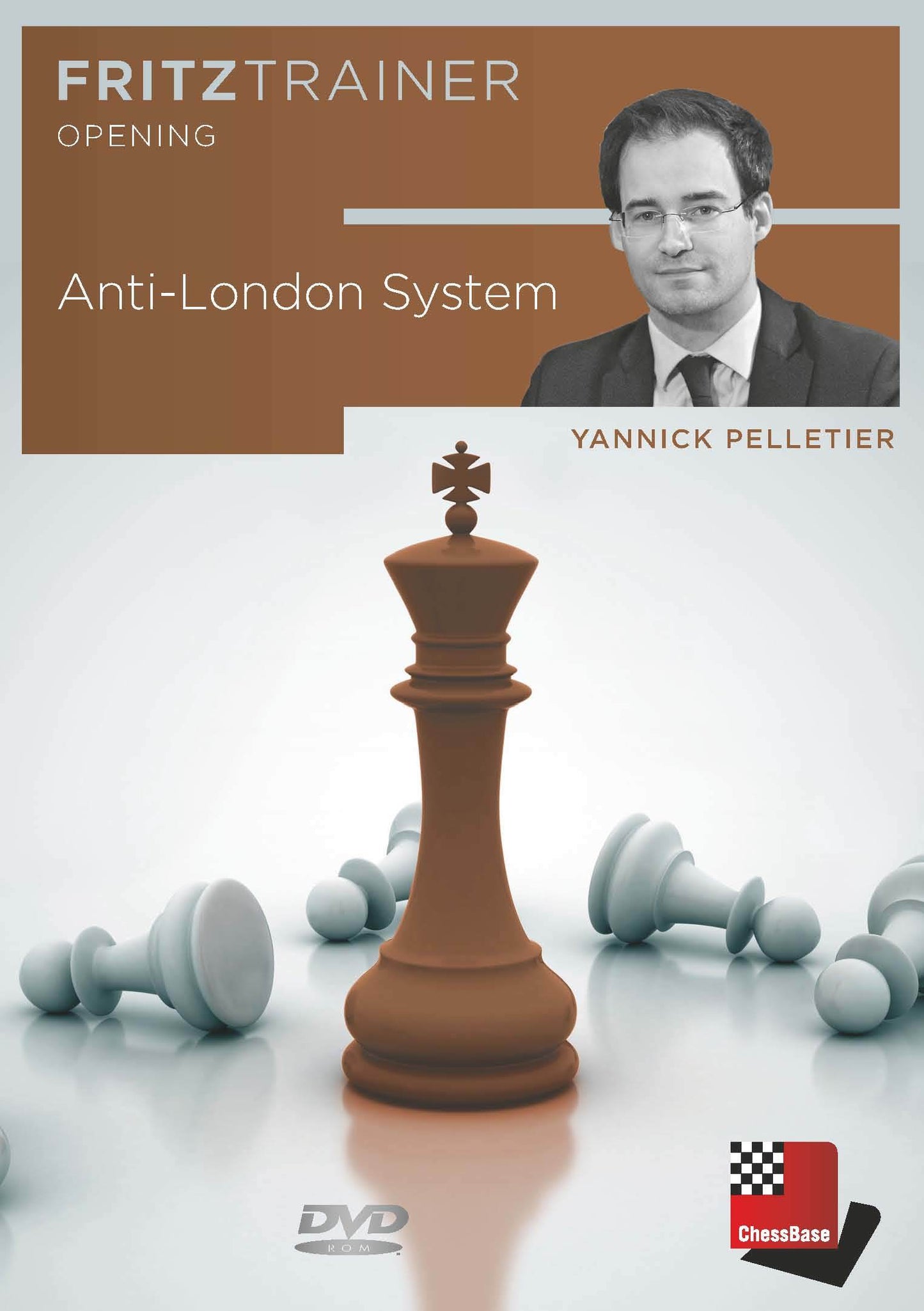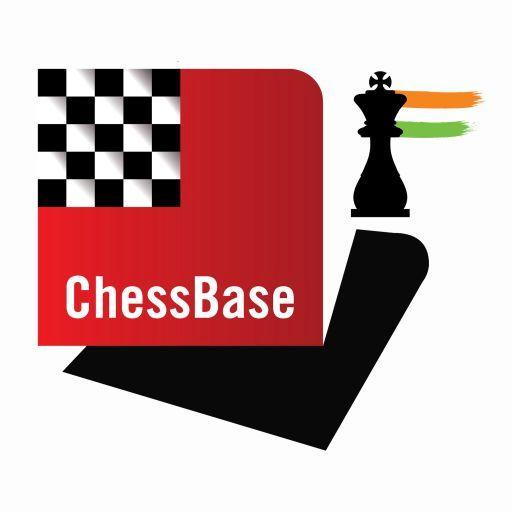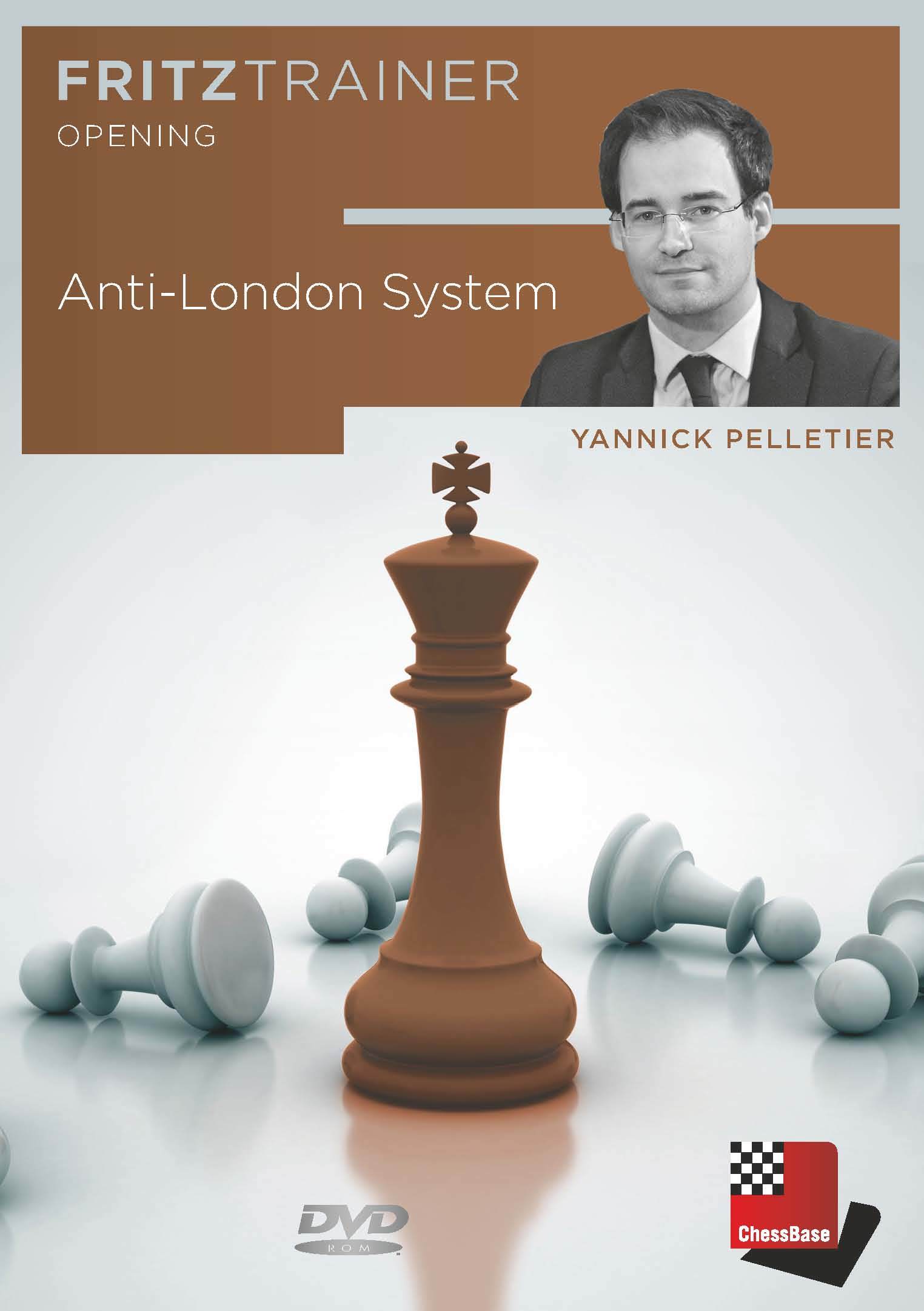Yannick Pelletier: Anti-London System
Yannick Pelletier: Anti-London System
Couldn't load pickup availability
Yannick Pelletier: Anti-London System
The London System, which for a long time had been the reputation of a rather harmless sideline, has developed into a very popular opening, and World Champion Magnus Carlsen is only one of many top players who plays it regularly. The
London System indeed suits the modern approach to openings very well: White does not necessarily strive for an opening advantage but is content to develop his pieces and hopes to outplay his opponent in the middlegame. However, the
London System is more dangerous than it seems and if Black is not careful he can easily wind up in a bad position. Theory develops fast today, even in less concrete systems. On this DVD GM Yannick Pelletier offers Black a repertoire against the
London System that you can employ no matter which opening (Systems with d5, systems with g6, Queen’s Indian, Queen’s Gambit, Benoni, Benko, Dutch) you usually play against 1.d4 followed by 2.c4. Thematic games explain and illustrate the
theory and ideas of the repertoire Pelletier proposes. At the end of the DVD you are invited to test your knowledge. The author pauses at key moments and asks you to find and to play the best move, after which he gives feedback. A database
with carefully selected and annotated games helps you to understand and play the opening better and to counter the London System with success.
• Video running time: 4 h 50 min (English)
• Interactive training including video feedback
• Extra: Model Games with annotation by the author
• Including CB 14 Reader
Born in 1976 Yannick Pelletier is a Grandmaster and a chess professional. He’s a regular member of the Swiss national team and a six-time Swiss Champion (1995, 2000, 2002, 2010, 2014 and 2017). He won several open tournaments throughout his career and in 2015 beat Nakamura and a month later the reigning World Champion Magnus Carlsen in tournament games. Yannick Pelletier also organises the Biel Chess Festival and is known on the chess circuit as a lively commentator. He’s fluent in five languages (French, German, English, Spanish and Russian).
System requirements:
Minimum: Pentium-PC 1 GHz, 1 GB RAM, Windows 7, DirectX9 graphic card with 256 MB RAM, DVD-ROM drive, Windows Media Player 9 and internet connection for program activation Recommended: PC Intel Core i7, 2.8 GHz, 4 GB RAM, Windows 10, DirectX10 graphic card (or compatible) with 512 MB RAM or better, Windows Media Player 11, DVD-ROM drive and internet connection for program activation
- 01: Introduction [12:17]
- Systems with g6
- 01: London g6 - Theory - 1.d4 Nf6 2.Bf4 g6 3.Nc3 d5 and 1.d4 Nf6 2.Nf3 g6 3.Bf4 Bg7 4.e3 0-0 [19:30]
- 02: Ballmann,M - Cvitan,O - 1.d4 Nf6 2.Nf3 g6 3.Bf4 Bg7 4.e3 d6 5.h3 0-0 6.Be2 c5 [12:57]
- 03: Harikrishna,P - Sasikiran,K - 1.d4 Nf6 2.Nf3 g6 3.Nc3 d5 4.Bf4 Bg7 5.Qd2 0-0 [07:34]
- Systems with d5
- 01: Theory 1 - Early Nf3 - 1.d4 d5 2.Nf3 Nf6 3.Bf4 c5 4.e3 Nc6 5.Nbd2/c3 [22:32]
- 02: Theory 2 - Delayed Nf3- 1-d4 d5 2.Bf4 c5 3.e3 Nc6 4.c3 Nf6 5.Nd2 Bf5 [14:03]
- 03: Kovacevic,V - Ribli,Z - 1.d4 d5 2.Nf3 Nf6 3.Bf4 c5 4.e3 Nc6 5.c3 Qb6 6.Qb3 c4 [13:26]
- 04: Indjic,A - Fridman,D - 1.d4 d5 2.Nf3 Nf6 3.Bf4 c5 4.e3 Nc6 5.Nbd2 Qb6 6.dxc5 Qxb2 [12:01]
- 05: Eljanov,P - Ponomariov,R - 1.d4 d5 2.Bf4 c4 3.e4 dxe4 4.d5 Nf6 5.Nc3 a6 6.Qe2 g6 [09:12]
- 06: Iordachescu,V - Bluebaum,M - 1.d4 Nf6 2.Bf4 d5 3.e3 c5 4.c3 Nc6 5.Nd2 Bf5 6.Qb3 Qc8 [11:35]
- Queen's Indian
- 01: Theory Queen's Indian - 1.d4 Nf6 2.Nf3 e6 3.Bf4 b6 4.e3 Bb7 5.Nbd2 Be7 [14:21]
- 02: Mueller,M - Kunin,V - 1.d4 Nf6 2.Nf3 e6 3.Bf4 c5 4.e3 Be7 5.Bd3 0-0 6.Nbd2 cxd4 [11:54]
- Queen's Gambit
- 01: Theory Queen's Gambit - 1.d4 Nf6 2.Bf4 e6 3.e3 d5 and 1.d4 Nf6 2.Nf3 e6 3.Bf4 d5 [21:38]
- 02: Kindermann,S - Adams,M - 1.d4 d5 2.Bf4 Nf6 3.e3 e6 4.Nd2 Bd6 5.Bg3 0-0 [09:58]
- 03: Nabaty,T - Rakhmanov,A - 1.d4 d5 2.Bf4 e6 3.e3 Nf6 4.Nf3 Bd6 5.Bxd6 Qxd6 [13:27]
- Systems with c5 and f5
- 01: Benoni/Benko - 1.d4 Nf6 2.Bf4 c5 3.e3 and 1.d4 Nf6 2.Nf3 c5 [06:14]
- 02: Dutch - 1.d4 f5 2.Nf3 Nf6 3.Bf4 g6 and 1.d4 f5 2.Bf4 Nf6 3.e3 [12:33]
- Conclusion/Test Section
- 01: Conclusion [03:06]
- 02: Question 1 [04:40]
- 03: Questions 2 +3 [07:57]
- 04: Question 4 + 5 [06:55]
- 05: Question 6 [03:57]
- 06: Question 7 [03:02]
- 07: Questions 8 - 10 [11:31]
- 08: Question 11 [08:06]
- 09: Question 12 [02:29]
- 10: Question 13 [05:00]
- 11: Question 14 [03:16]
- 12: Kharlov,A - Sadler,M [04:42]
Information regarding product delivery
Information regarding product delivery
*Pre-ordered digital/physical products will be sent by email/courier on the launch date of that product.
Digital Products (Softwares, Magazines, etc)
All digital products are delivered instantly. Once your payment is successfully processed, you will receive the following instantly via email:
- Serial key
- Setup files
- Installation procedure
Please ensure you provide the correct email address during checkout, as the serial key and files will be sent to that email address instantly upon successful payment.
Physical Products (Books, Chess Sets, etc)
These will be shipped to your address via third-party courier partners.
We dispatch all orders (except customised t-shirts) within 1-2 days. Orders placed on weekends and holidays may take 1-2 additional days to ship, as we do not operate on these days.
Delivery timelines are as follows:
- Standard Delivery (India): 7–10 working days
- Express Delivery (India): 2–5 working days
- International Shipping: Estimated 2 weeks (may vary based on destination and customs)
You will receive a tracking link via email once your order is dispatched.
Regarding MacOS compatibility for softwares
Regarding MacOS compatibility for softwares
Although not officially supported on Mac, there is a workaround that people find helpful. You can check it here.
Important note for international customers
Important note for international customers
We sell digital products (softwares) and most of our physical products only in the following 11 countries:
India, Bangladesh, Nepal, Bhutan, Maldives, Sri Lanka, Thailand, Indonesia, Pakistan, Malaysia, Philippines.
If you do not belong to any of these countries, you can still buy some high-quality products that we ship worldwide. Please check those out here.
- Trusted Since 2016
- Premium Quality
- Free Delivery
Share



